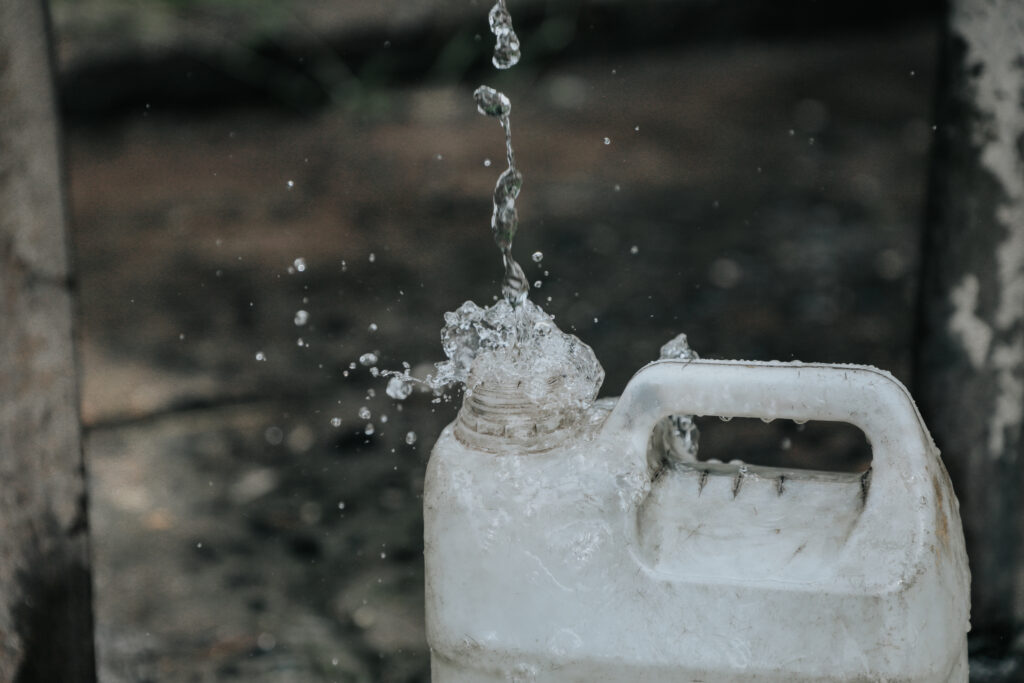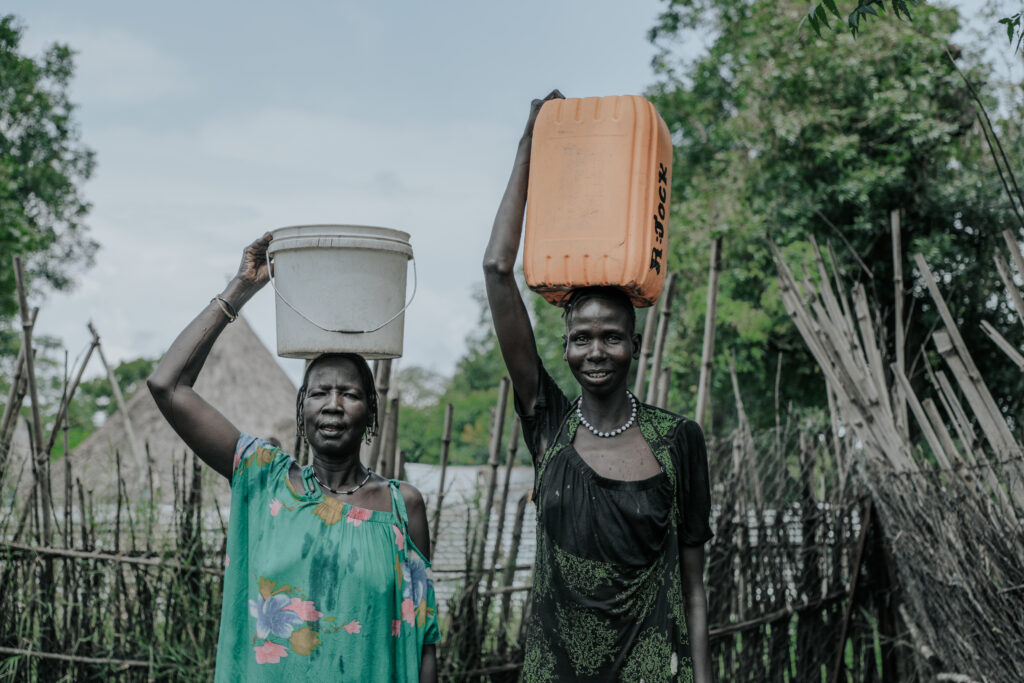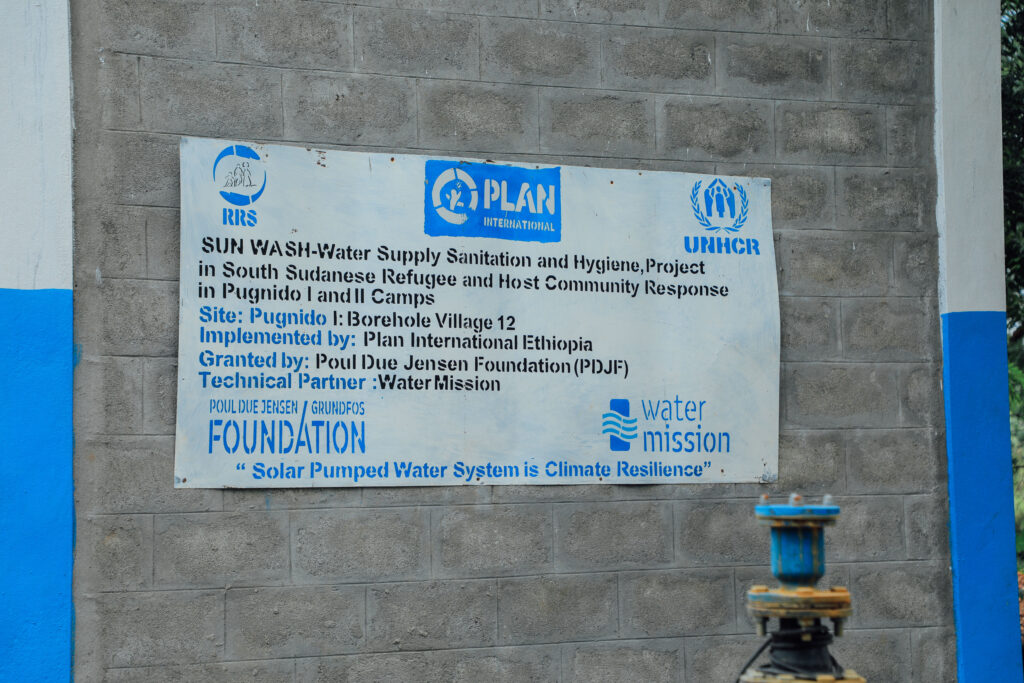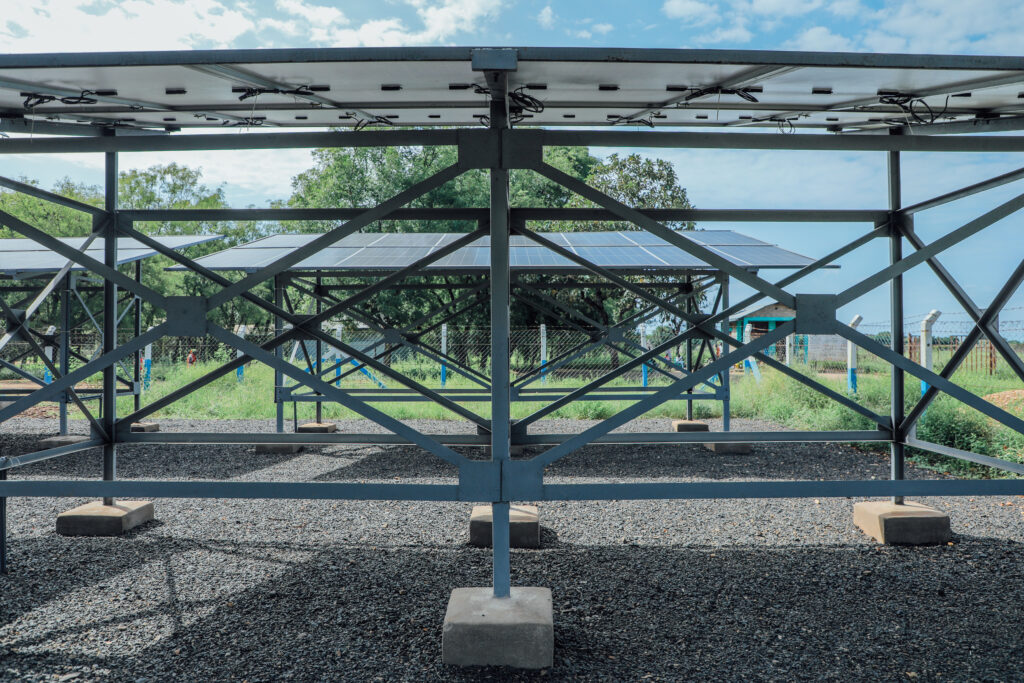Since 2020, Plan International and the American NGO Water Mission have been working to create stable access to clean drinking water in two refugee camps in the Gambella region of Ethiopia. The water programme is called SunWASH, and specifically, four solar-powered automatic water systems have been established in the camps and pipes have been laid to bring clean water to schools and kindergartens for the benefit of a total of 40,000 people.

SunWASH will be expanded over three years to provide an additional 184,000 Ethiopians in Gambella with access to clean drinking water and sanitation. The Grundfos Foundation is donating DKK 10.7 million to the effort in the first year. Photo: Plan International Ethiopia
Gambella, in western Ethiopia, is one of the poorest regions in the country. The area is particularly hard hit by water shortages and sudden, heavy rains and flooding due to climate change. This has led to food shortages and low agricultural productivity, causing conflict and violent clashes between refugees and local Ethiopians vying for scarce resources.
Therefore, SunWASH will be expanded over three years to provide an additional 184,000 Ethiopians in Gambella with access to clean drinking water and sanitation. The Grundfos Foundation is donating DKK 10.7 million to the effort in the first year.
Great global potential
PlanBørnefonden and Plan Ethiopia contribute with insight into the local conditions, training of the population and are responsible for the overall implementation. The solar-powered water system is developed with unique Grundfos technology, which makes it possible to get the optimal water supply at the cheapest price. This way, the partners complement each other for the benefit of the most vulnerable in Gambella.
“SunWASH is a great example of how private actors and NGOs in partnership can effectively create innovative solutions. Our hope is that the SunWASH model can become a textbook example of how to implement water programmes in refugee communities globally for the benefit of people and climate,” says Anne Smith Petersen.
Despite global progress, there is still a long way to go if UN Sustainable Development Goal 6 – clean water and sanitation for all – is to be realised by 2030. 2.2 billion people still lack access to clean water and 3.5 billion – close to half of the world’s population – live without proper hygiene and toilet facilities. This requires new solutions and private investment.
“To solve the global water crisis, we need skills-driven partnerships, innovative solutions and private investment. This is essential to ensure access to clean and safe drinking water, sanitation and hygiene for the world’s most marginalised children and families,” she says.
Empowering girls and women
It is girls and women who have the hard and time-consuming task of fetching water several times a day. With a sustainable water supply close to home, more girls can attend school and women can spend time on other income-generating activities. Women are rarely consulted when communities make decisions about how to manage water, sanitation and hygiene. Therefore, it is a central part of SunWASH to challenge some of the skewed structures and norms. At the same time, young women are trained to produce and sell sanitary pads, which can help create health, dignity, and income for women in the long term.

Women are rarely consulted when communities make decisions about how to manage water, sanitation and hygiene. Therefore, it is a central part of SunWASH to challenge some of the skewed structures and norms. Photo: Plan International Ethiopia
About the SunWASH Programme
SunWASH is a combination of Sun and WASH, where WASH stands for Water, Sanitation and Hygiene. Sun is included because the water is pumped up via solar energy. Grundfos’ unique technologies ensure that the energy is optimally utilised in the pump solutions that are installed.
- Plan International Denmark and Ethiopia will be responsible for training, contact with the authorities and the overall project management, while Water Mission will be responsible for the technical installations.
- Local authorities have been trained to maintain the solar cells and water pumps via a solar lab in the capital Addis Ababa, established in collaboration with Danida and Grundfos.



